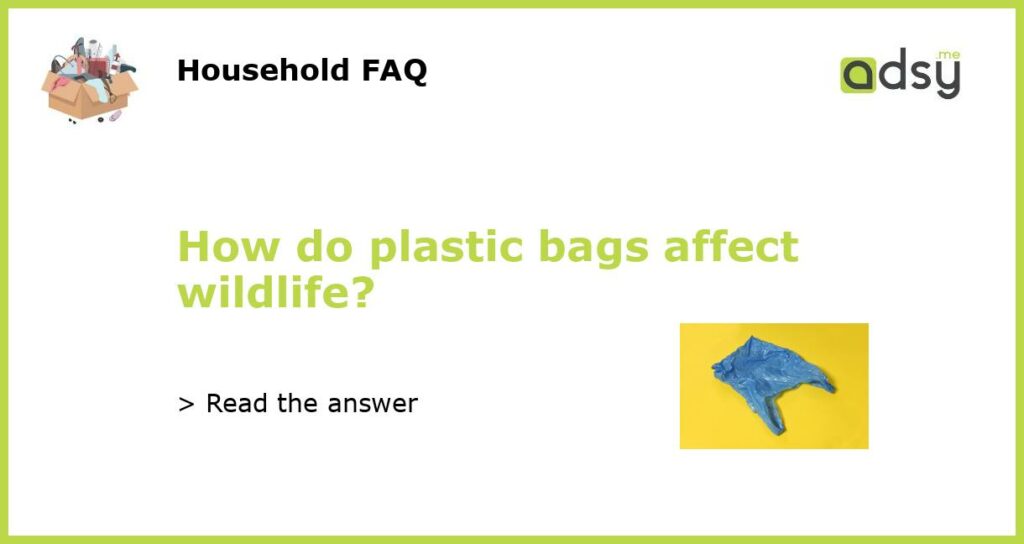Plastic Bags: A Silent Threat to Wildlife
Plastic bags, widely used for their convenience, have become a silent and persistent threat to wildlife. These bags, made from non-biodegradable materials, pose a significant danger to marine and terrestrial animals alike. The harmful impact of plastic bags on wildlife is multifaceted, affecting their habitats, health, and overall survival. Here, we explore the various ways in which plastic bags affect wildlife.
Entanglement and Suffocation
One of the most immediate and visible effects of plastic bags on wildlife is entanglement and suffocation. Animals like birds, sea turtles, and marine mammals often mistake floating plastic bags for food or get entangled in them while swimming. Once trapped, these animals struggle to free themselves, leading to injuries, exhaustion, and even death. The sheer ubiquity of plastic bags in our environment exacerbates the risk of entanglement and suffocation for wildlife.
Ingestion and Digestive Issues
Plastic bags not only pose a physical hazard but also create severe problems when animals mistake them for prey and ingest them. Marine animals, including fish, whales, and seabirds, are particularly susceptible to ingesting plastic bags while hunting for food. These mistaken meal choices can lead to blockages in the digestive system, preventing the absorption of nutrients and causing starvation. In addition, the toxic chemicals present in plastic bags can leach into the animal’s body, causing further harm.
Habitat Destruction and Alteration
The impact of plastic bags on wildlife goes beyond direct harm. These bags contribute to habitat destruction and alteration, with long-lasting consequences for ecosystems. When plastic bags are dumped irresponsibly, they can clog waterways, drainage systems, and seafloors, affecting the delicate balance of aquatic ecosystems. Additionally, plastic waste in terrestrial environments can smother plant life, disrupt ecological interactions, and cause long-term damage to habitats needed for wildlife survival.
Weakens Food Chains and Marine Life
The widespread use and disposal of plastic bags have severe repercussions for marine life and the overall health of ecosystems. Plastic bags that break down into smaller pieces, known as microplastics, can enter the food chain, affecting both herbivorous and carnivorous species. These microplastics can accumulate in the tissues of marine animals over time, leading to internal damage, reproductive issues, and reduced overall health. As predators consume contaminated prey, the toxins can accumulate and magnify along the food chain, ultimately affecting marine life and other wildlife reliant on these ecosystems.
Negative Impact on Biodiversity and Conservation Efforts
The detrimental effects of plastic bags on wildlife contribute to the loss of biodiversity and pose challenges to conservation efforts. By disrupting ecosystems and causing harm to vulnerable species, plastic bags become a barrier to maintaining healthy and diverse ecosystems. The loss of wildlife due to plastic bag pollution disturbs natural ecological processes, threatening the delicate balance of ecosystems and hindering conservation initiatives aimed at preserving biodiversity.






